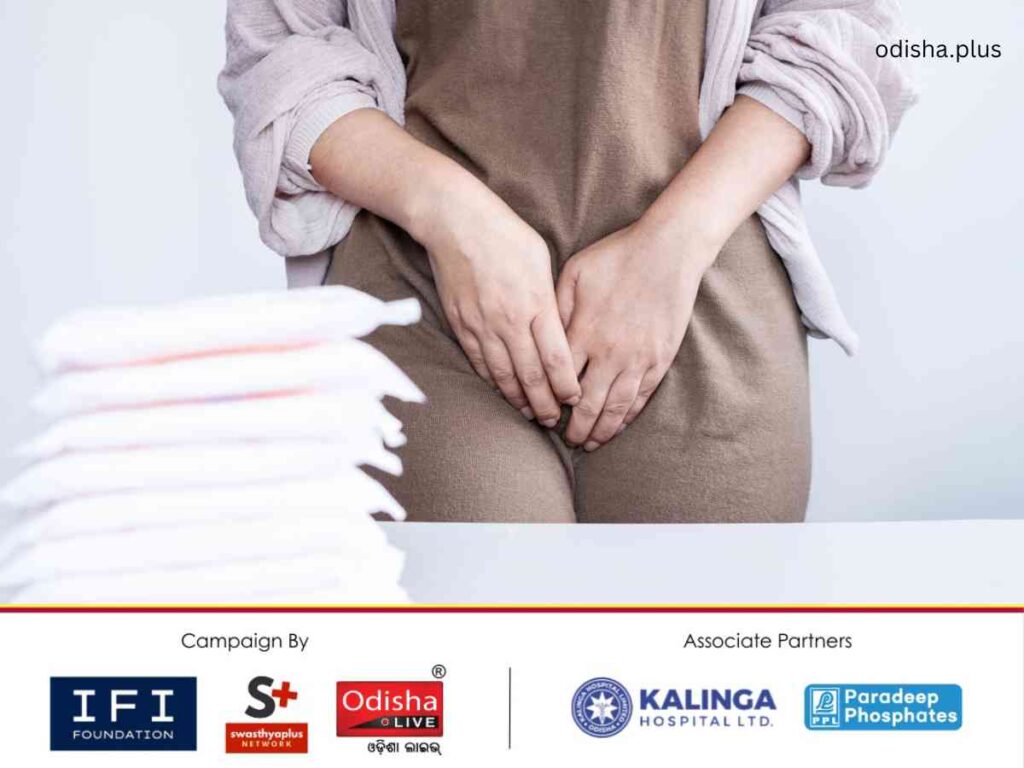Parents, teachers and peers can play a significant role when it comes to the mental and physical health of menstruating adolescents, in ending the stigma and creating the positive environment that they need to thrive
Vidhika Kohli

The Period: the marker for the end of sentences, or an alternative term for the cyclical process? Considered taboo, stigmatized and shrouded by a ‘culture of silence’. discussions around ‘the period’ have often been treated the same as the former: the end of the conversation.
But the vision for a Period Friendly World is built upon the idea of a ‘period friendly’ social environment. Ideally, in line with this vision, menstruation should no longer be stigmatized.
As long as menstruation is still being stigmatized, the challenges surrounding it will remain confined to private conversation and away from public discourse. And as long as it stays out of public discourse these problems cannot be addressed or solved at a systematic level.
In India, the stigma around periods not only comes in the way of simple conversations surrounding menstruation within the home or education space but also limits the lives of many girls and women with restrictions such as entering the kitchen and entering places of worship being imposed during their period.
A lot of these challenges stem from traditional beliefs or myths related to the Periods, thus, to achieve a period friendly social environment, we’ll need to debunk these myths first.
Beliefs such as ‘girls are impure and dirty during their period,’ girls should not be allowed to cook during their period, enter the kitchen or visit places of worship, are all common myths.
As a matter of fact, scientifically, the cause of menstruation is ‘ovulation followed by a missed chance of pregnancy.’ There is no reason for women to be seen as ‘impure’ for having their period. It is a natural and biological process which is experienced by millions of girl and woman around the world.
Many believe that menstruation makes a person unhygienic and dirty, and there exists a belief that cooking during this time will spoil food, but, as long as general hygiene measures are taken, there exists no scientific proof that food will get spoiled if it’s prepared by menstruating girls or women.
Further, periods are not a ‘disease’ or ‘contagious’ there is no reason for girls to be kept separate from others or made to sleep in separate rooms.
The common belief that eating sour food like curd, tamarind and pickles should be avoided because it’ll affect or stop the menstrual flow is also untrue as there is no scientific evidence of sour food affecting menstrual flow.
Similarly, physical activity like exercise which is generally believed as something that needs to be avoided because of ill-effects on health can actually be quite beneficial towards health and releases serotonin which can make girls happier as well as healthier.
Young girls and women have, often, based on these myths and the general attitude towards the period as being something to be hidden or something to be shy about, been affected in many negative ways not only physically but also mentally.
Menarche brings biological, psychological as well as social changes in the lives of many young girls and it is important to ensure that they have a positive, supportive environment as they go through these changes.
With ‘stigma’ and ‘taboo’ thriving there have been many instances of young girls missing around a week of classes every month or dropping out of school entirely due to shame, lack of facilities or access to hygiene products, and due to the physical and mental toll that menstruation can have, especially, within a relatively stressful environment.
Statistically, a study in India found that 1 in 5 girls drops out of school after they get their first period.
“From my childhood to the present day, there has been a significant change over time. Today, girls freely discuss menstrual health and hygiene with their parents. They buy sanitary napkins without hesitation. In the past, we hesitated to talk about our periods with our mothers. But nowadays, girls openly share their experiences,” said Sulochana Das, Mayor of Bhubaneswar Municipal Corporation.
Parents, teachers and peers can play a significant role when it comes to the mental and physical health of menstruating adolescents, in ending the stigma and creating the positive environment that they need to thrive.
If both mothers and fathers openly discuss menstruation with their children– both girls and boys–fewer adolescents may experience shame or feel the need to isolate themselves. This openness can encourage young people to speak freely about their health, ensuring that potential issues don’t go unnoticed or unaddressed.
Moreover, educating boys alongside young girls about menstruation is equally important. There have been many instances of boys teasing girls about their period, which further contributes to the poor mental health and feelings of ‘shame’ that young girls often face while going about their daily lives. It’s important, hence, for both parents at home and teachers within the education space to contribute towards breaking down the taboos and informing both boys and girls about the matter.
When it comes to spreading awareness and keeping people informed the Media stands as a very important factor of communication.
By expanding discussions from small groups to the broader society, we can ensure that challenges are brought into public discourse rather than remaining overlooked. When issues stay hidden, they cannot be addressed or solved systematically. That’s why we must actively leverage the media—across all platforms, from print and television to social media and digital spaces—to spark conversations, drive awareness, and create momentum for real solutions.
The ‘Let’s Talk Periods’ campaign has been a perfect example of utilizing the media for breaking the stigma and addressing so many of the problems surrounding the period and period awareness.
Ranging from videos series, social media posts, reels and written content, the initiative has harnessed a combination of various methods to contribute positively to the effort.
Let us not treat the Period as the end of the conversation, but instead see it as the precursor to a positive cycle of change.
Spread awareness. Stay in loop. Talk about Periods.
IFI Foundation in collaboration with OdishaLIVE, and Swasthya Plus is running a digital media campaign to raise awareness about menstruation among Odisha’s adolescent boys and girls, women and masses. With titled ‘Let’s Talk Periods’, the campaign on the eve of ‘World Menstrual Hygiene Day’ observed annually on May 28, is active from 19-29 May, 2025, over a span of 10 days.
ALSO READ: Period Products: Types, Uses and Access























